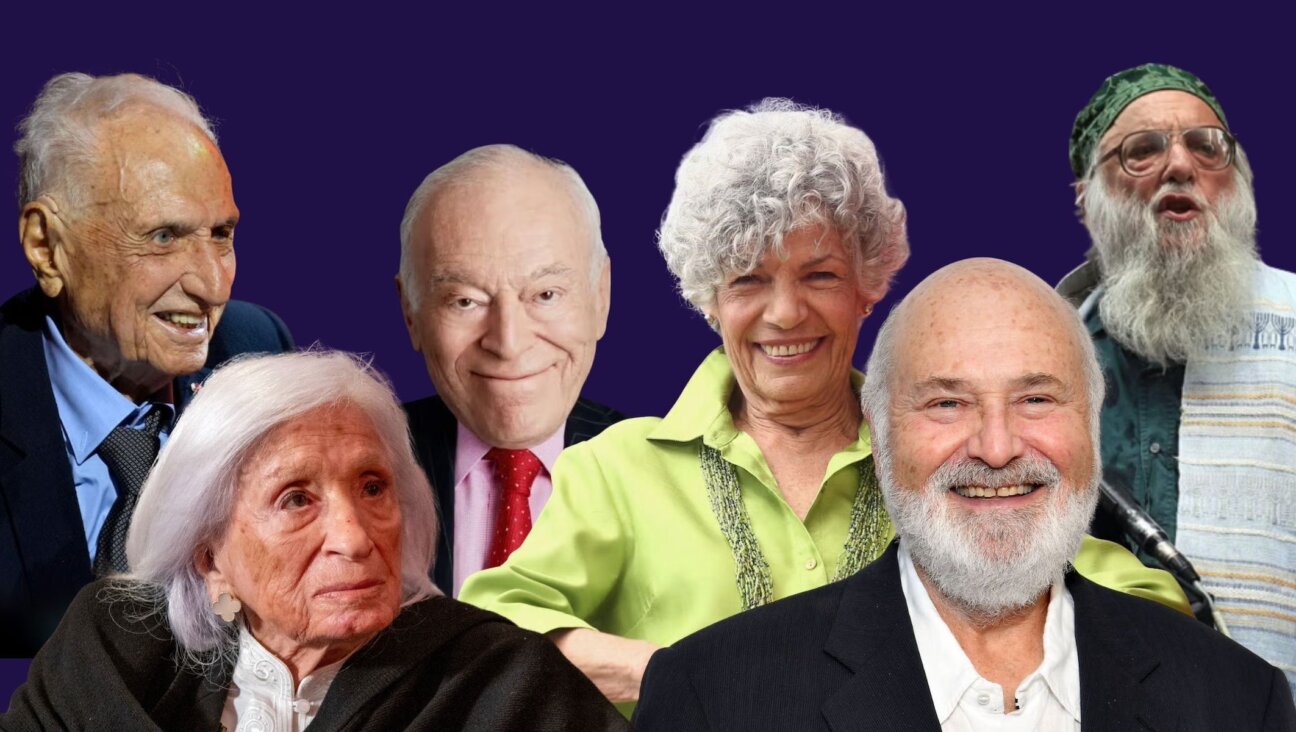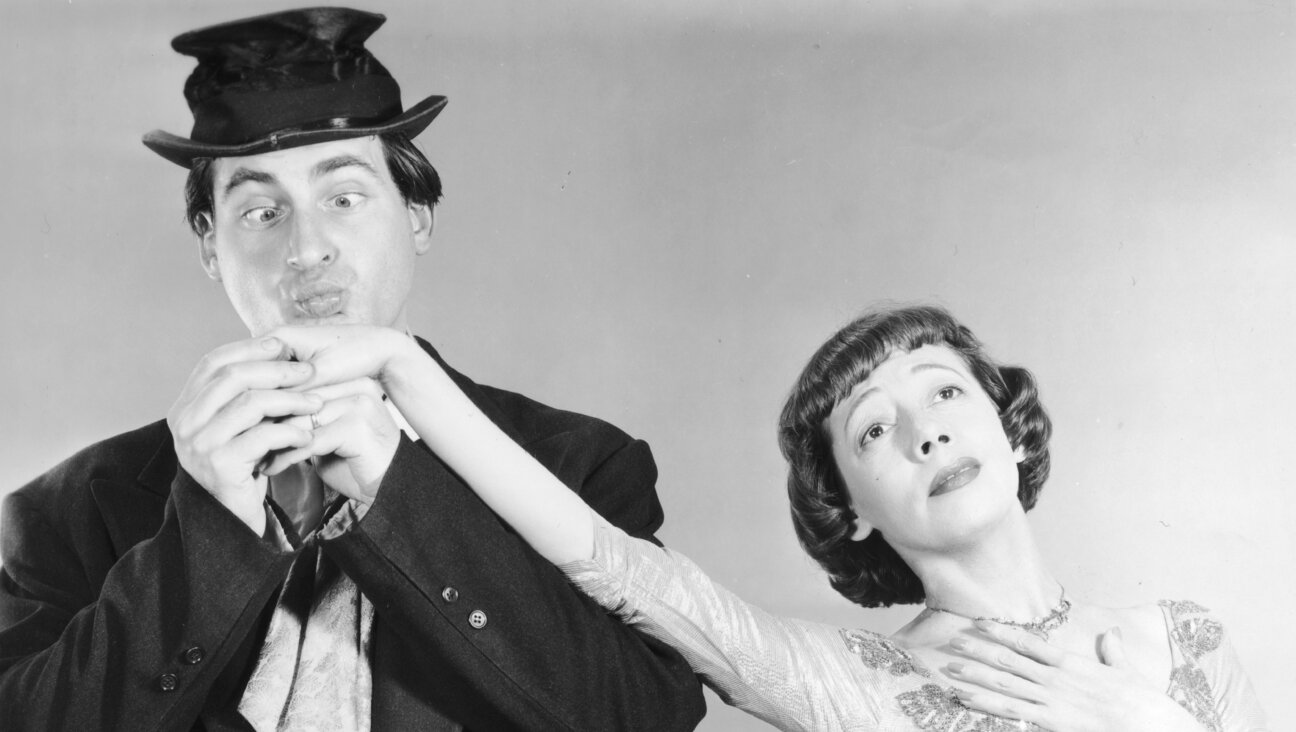Eva Mayer Schay: Surviving Exile and Sadistic Music Teachers

Graphic by Angelie Zaslavsky
The monumentally traumatic exile of European Jews during Fascist times was paralleled in some ways by the inner trauma of Jewish music students saddled with sadistic teachers. This is the surprising conclusion of a discursive, artless new autobiography, more case history than memoir, “Of Exile and Music: A Twentieth Century Life” (Purdue University Press) by Eva Mayer Schay, a longtime violinist (now retired) in the English National Opera orchestra.
Born in 1931, Schay fled Germany with her parents in 1933, eventually settling in South Africa in 1936. There, dazzled by seeing Jascha Heifetz in Hollywood films like 1939’s “They Shall Have Music” and 1947’s “Carnegie Hall,” Schay resolved to be a violinist.
It is revelatory that she chose to idolize Heifetz, an amazing virtuoso but a notoriously icy personality and sadistic teacher, as a 2001 memoir by his pupil Ayke Agus details. Schay endured two German Jewish refugee teachers in Johannesburg, the “unrelenting onslaught” of pianist Rosa Geisenberg and the violinist Hermann Abramowitz, who would shout “Relax!” into the young girl’s ear as she played, making her tremble with nerves. Both instructors were “Hitler’s casualties,” which explains but does not excuse the damage they inflicted on Schay, who was destined to suffer a lifetime of performance nerves.
Still, Schay’s musical talent got her to London, where she found Jewish musical exiles whose personal sufferings did not keep them from being humane, benevolent and encouraging presences. Among these was the highly accomplished, although still underrated Austrian-born violinist Max Rostal. Another kindly UK mentor was the superb chamber musician Emanuel Hurwitz who told Schay: “There’s nothing wrong with your violin playing, the trouble is with your mind!”
Then there was the beloved teacher Yfrah Neaman, born in Lebanon to Jewish parents from Palestine, and the Hungarian Sándor Végh. Schay was able to distance herself from the glacial Heifetz ideal, finally seeing her former idol play live in London in 1953 and finding his Mozart “charmless” and Tchaikovsky “cold.” Schay became dubious about certain great Jewish virtuosi who also behaved boorishly, like the superstar Mischa Elman, who at one recital “loudly and obtrusively tuned his violin over a solo passage by his pianist.” Learning that even great virtuosi have foibles and flaws was part of the maturing process recounted in this pained, but frank, memoir.

















